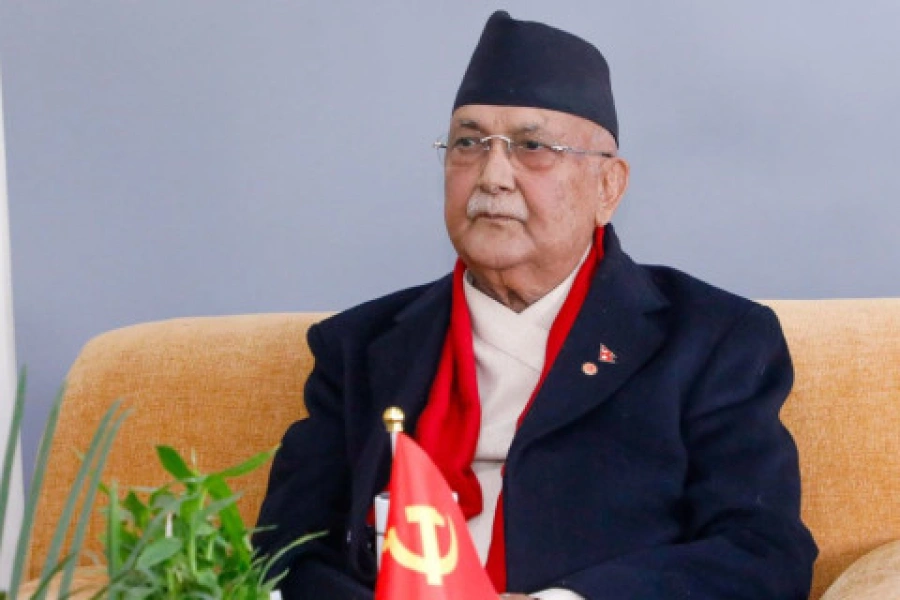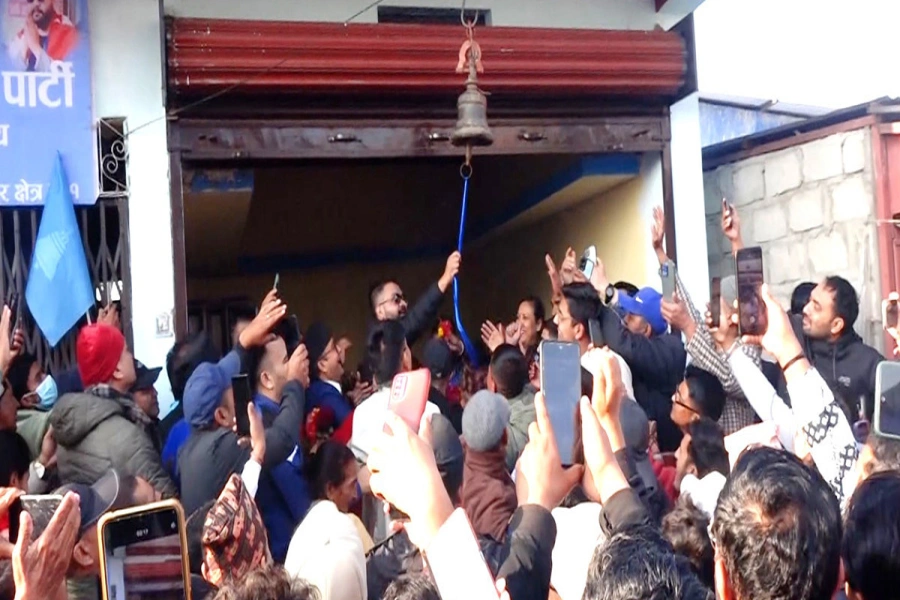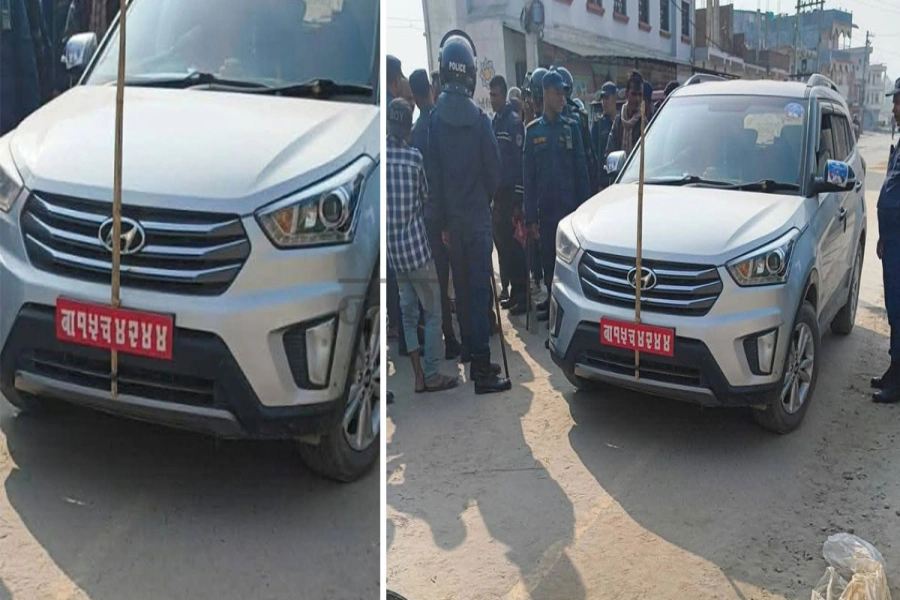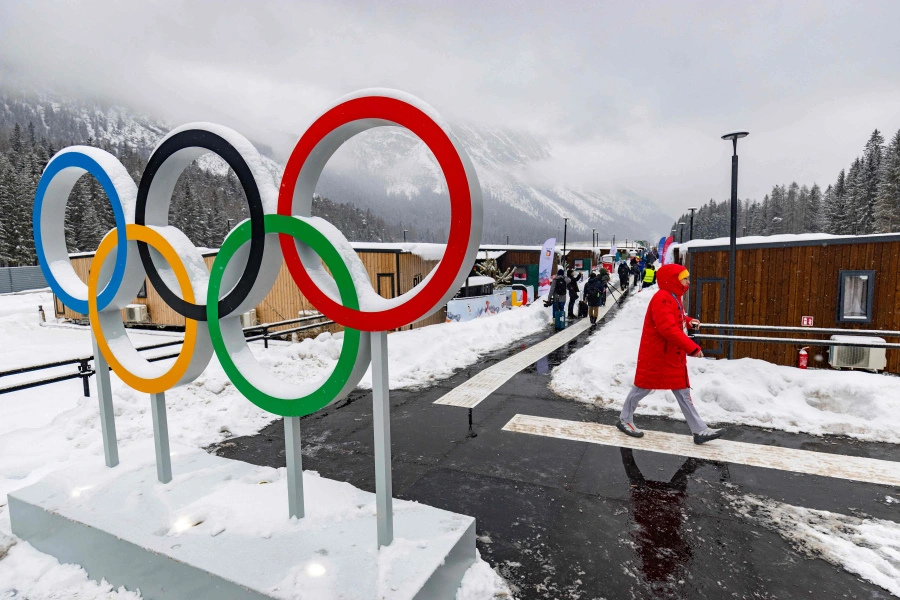Cancellation of Budhi Gandaki did not go down well in Beijing. So why was Chinese envoy at such pains to talk up good relations with Nepal?
China would continue to support Nepal on the basis of “equal treatment, mutual cooperation and shared development framework”, Chinese Ambassador to Nepal Yu Hong was reassuring Nepalis. She was speaking only days after Nepal’s cancellation of the US $2.5-billion contract with China’s Gezhouba Group to build the 1,200-MW Budhi Gandaki, in what would have been the biggest hydropower plant in Nepal. Yu didn’t stop there. She also promised to soon reopen the Tatopani border point. She then lauded Nepal’s continued commitment to ‘One China’. What is going on?
Chinese foreign policy, much like its domestic politics, can seem rather bewildering to outsiders. When there seems to be a clear case for brandishing a stick, they dangle a juicy carrot, and vice-versa. Surely, Nepal’s hasty decision to cancel such an important contract did not go down well in Beijing. So why was Yu at such pains to emphasize good relations with Nepal?
Banyan, the Asia columnist for The Economist, recently tried to make sense of what he refers to as China’s ‘doghouse approach’ to diplomacy: “If China does not like what you are doing, it bullies you until you change. If you don’t, it punishes you by putting you in the doghouse”.
But what happens if other countries still refuse to change? “It pulls you out again after a suitable term of punishment, pretends all is normal and expects you to be grateful,” Banyan concludes (Nov 9, 2017). The script may not be the same everywhere, nor Banyan bang on the mark every time. Yet a broader point is well made: that China has a carrot-and-stick approach that is uniquely its own.
Lucknow Super Giants exit IPL 2025 after 6-wicket loss to Hyder...

That is also not to suggest that the other important neighbor of Nepal, India, has followed a straight and narrow path abroad. Kautilya, in many ways the father of Indian statecraft, was advising his countrymen, as early as 4th century BC, to try to soften foreign rulers with various inducements to make them ripe for a sudden invasion. In the words of Max Weber, compared to Kautilya, Machiavelli is “harmless”.
Art of the subtle
I digress. The point is that the Chinese try to be subtle in their foreign conduct. Yes, Beijing was incensed at the untimely cancellation of Budhi Gandaki. But what does China gain by openly showing dissent, at a time when there is already an immense wellspring of pro-China sentiment in post-blockade Nepal? Why not rather show that, in contrast to the ‘forever scheming’ Indians, Chinese magnanimity towards Nepal knows no bounds, so much so that China is now ready to open Tatopani despite its grave doubts about its misuse by pro-Tibet activists.
Moreover, the Chinese seem confident they will eventually get Budhi Gandaki back, perhaps after the left coalition comes to power after the twin elections. In fact, KP Oli has already promised that among the first duties of the future left government would be to restore Gezhouba’s contract, due process be damned. Perhaps there is also a realization in Beijing that even if there is a Congress government tomorrow, it will be under tremendous public pressure to give the contract to Gezhouba or some other Chinese company—if only to balance India’s sole (and unpopular) stake in Nepal’s strategic river systems.
This brings us to the possible proclivities of the new post-election government. A government under Nepali Congress will undoubtedly tilt towards India, for a variety of reasons. Congress-India relations are rooted in long history and shared democratic values, and the presence of the Madhesi parties in the ‘democratic alliance’ that Congress leads will bring it closer still to New Delhi. So will the calculation of Kamal Thapa that the only way to ensure the long-term survival of his Hindu state agenda is to hitch his ride with Modi’s Hindutwa bandwagon. No one knows better than the blockade-time foreign minister—and who, in his current avatar as the Minister of Energy, threw out the Gezhouba contract—that there are no free lunches in diplomacy.
Battle royale in offing
China’s role in bringing about the left coalition is often exaggerated. It had always advised the left parties in Nepal to come together to form one-strong communist outfit. But this was always a gentle advice rather than a diktat for Nepali communist outfits. Yet China is not displeased with the formation of the left alliance, and a government under it would be just about perfect for China. The calculation is that if the left comes to power, it will look to ride on the popular demand for closer ties with Beijing.
So India and China have their own calculations over their support for this or that political outfit in Nepal. But both know that elections in volatile polities are unpredictable and they will, as such, have to be ready for any eventuality. This is why even though China has traditionally looked to cultivate left parties in Nepal, it has in recent times also tried to woo top leaders of Nepali Congress. Concomitantly, India seems in a mood to forget past bitterness and start anew with Oli.
As far as the western powers are concerned, they most certainly prefer Deuba to continue as prime minister. His relationship with the US has always been cozy. The Europeans feel Deuba is best placed to address the concerns of the marginalized communities. And all these western powers have a sneaky suspicion that communist China is behind the left alliance. The niggling doubt over dictatorial ambitions of the alliance, in part fuelled by recent rabble-rousing comments of Messrs Oli and Dahal, also makes them prefer the democratic alliance.
Yet they too have become used to dealing with the communist forces in Nepal. It is telling that whenever western diplomats visit UML headquarters, the many portraits of Mao and Lenin hanging there conveniently disappear. Nominally, communists, UML is also the most ‘corporatized’ political party in Nepal. On the Maoists, the lesser said about the dilution of their once ‘revolutionary agendas’, the better. In other words, foreign actors in Nepal have covered all their bases.
In the days ahead, with highly ambitious leaders like Narendra Modi and Xi Jinping at the helm, Indo-China rivalry in South Asia can be expected to intensify. (After Dolkam, the two are now clashing over Arunachal Pradesh.) The Americans will be as active, sometimes working with the Indians, sometimes pretending to be working with the Indians whom they find unreasonably hung up on ‘strategic autonomy’. Expect fireworks.
biswas.baral@gmail.com





































